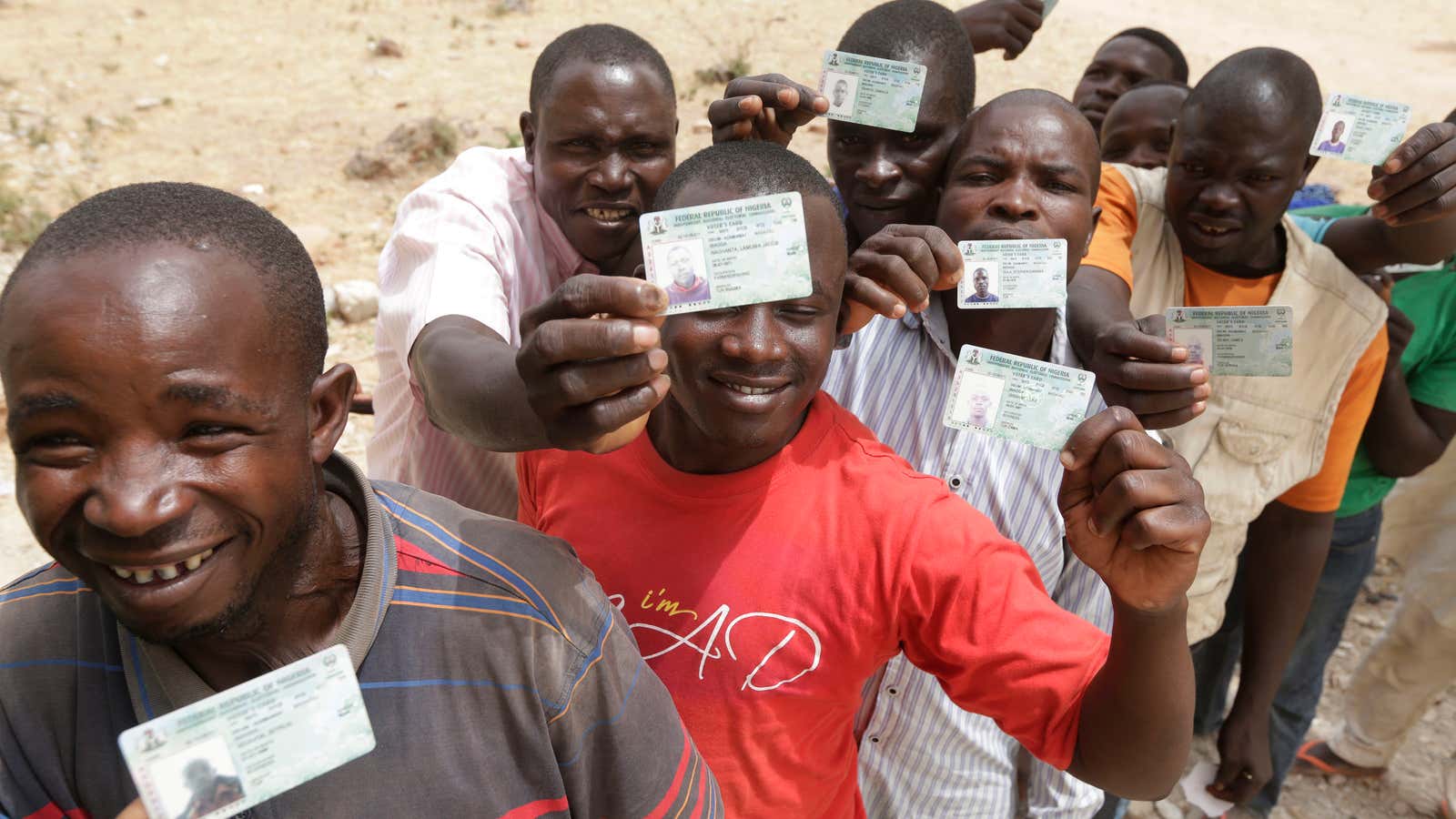Thirty-nine year old Emmanuel Macron’s exciting and successful campaign as a young, independent candidate during France’s presidential elections left many wondering if it was a one-off. If Nigerians have their way, it won’t be.
Nigerians hope to have the option to elect a younger leader during the next presidential elections in 2019, says a survey by NOIPolls.
The poll found a majority of respondents would prefer to vote for a presidential candidate aged between 40 and 50 years old in 2019. In comparison, Muhammadu Buhari, Nigeria’s current president, was 72 when elected into office. The disaffection with older leaders is likely linked to recent experiences with sickly presidents. Buhari is currently away to London on his second medical vacation this year receiving treatment for an undisclosed ailment. Buhari’s health issues inadvertently remind many Nigerians of Umaru Yar’Adua, winner of the 2007 presidential elections, who died in office just over two into his tenure.
Further echoes of Macron’s win were evident in the poll’s other results. For instance, it found that 73% of respondents are open to supporting an independent candidate during the elections. Macron founded En Marche!, an independent party a year before elections. That is unlikely to come to fruition in Nigeria as its electoral laws currently have no provision for independents seeking to run for office. In fact, since 1999, when the military handed over power to a civilian government, Nigeria’s politics have been dominated by two main parties. That dominance has been cited by many young political hopefuls as the biggest impediment to getting into office as running for and winning elections is near impossible without the backing of the establishment of either party.
One of the ironies of Nigeria’s politics is that the last time the country had young leaders was under military dictatorships. Yakubu Gowon (1967-1975) was 33, when he took office while Olusegun Obasanjo was 38 in 1976 when he started his three-year run as military head of state. Buhari was 41, when he became military head of state for 20 months from 1983 to 1985.
Another obstacle is the constitutional age limit to run for office. The age limit is currently 40 years for presidential candidates and 35 years for governorship and senatorial candidates. But a group of youth advocacy groups have launched the “Not Too Young To Run” campaign to lower the age requirements for candidates running for president, governor and senator to 30 and for state level representatives to 25. If passed into law, that could start to reverse a phenomenon that is prevalent across Africa as, despite being the youngest continent with 10 of the world’s youngest countries, African politics has been mostly dominated by older politicians.
